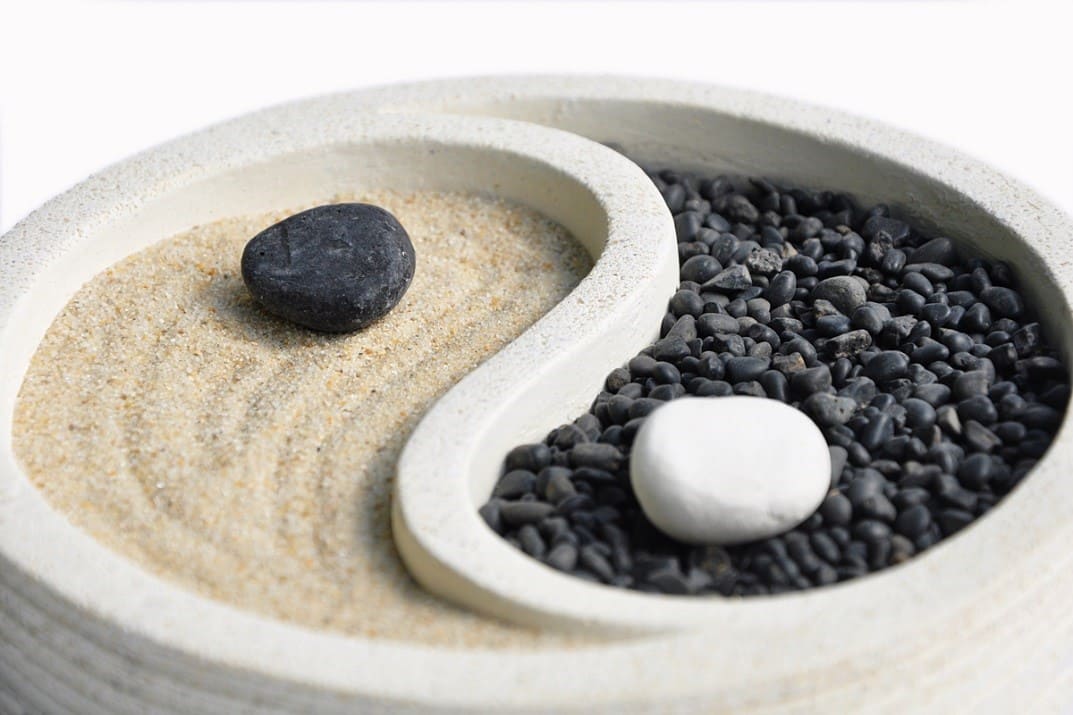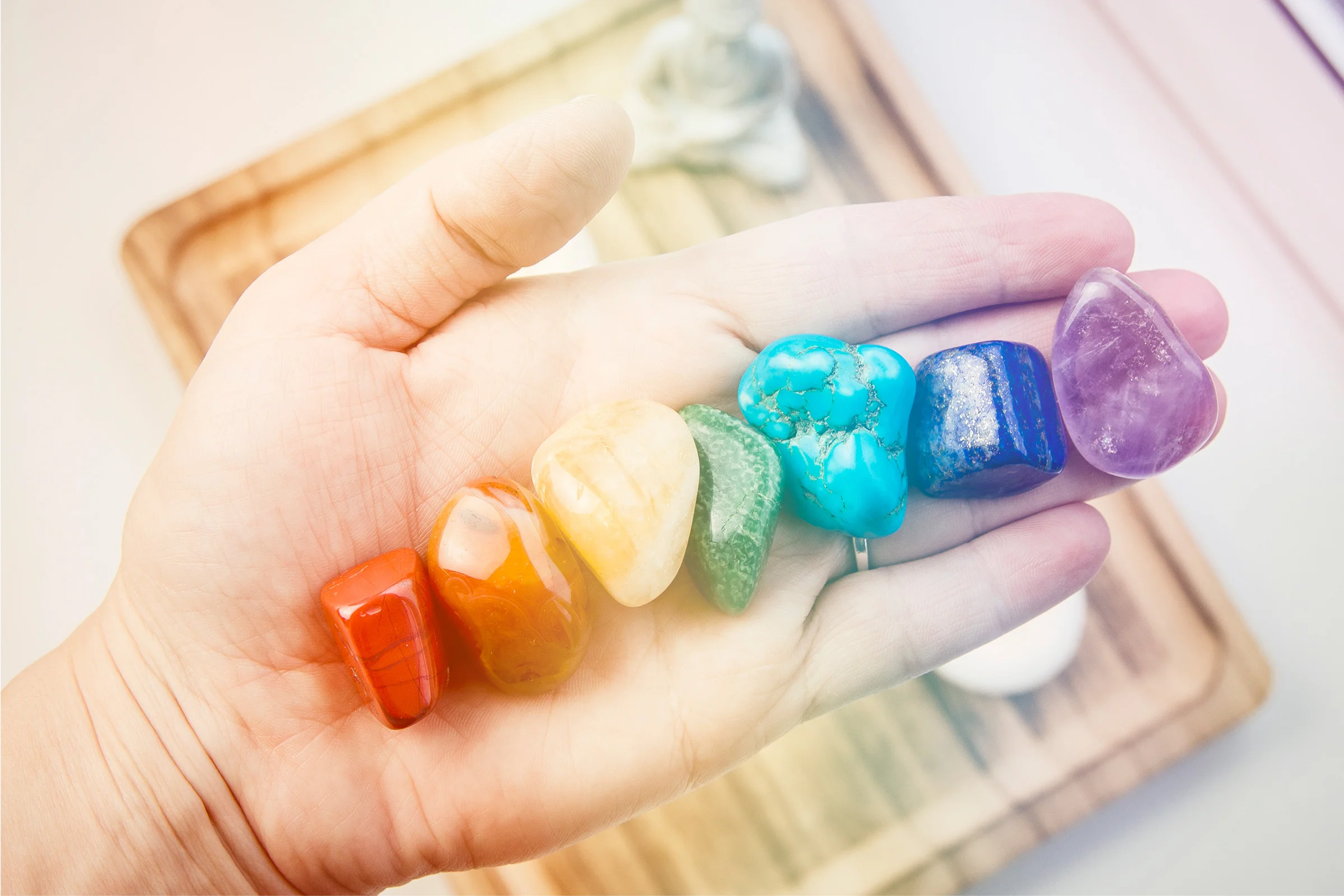We’ve all been there: the day you look around your home, and all of your hand-picked decor is suddenly overwhelming.
Your home should be a place of relaxation — so why do you feel stressed?
Although your first reaction might be to throw everything out and redesign your space entirely, the true solution requires a bit more guidance.
If your home is not giving you the energy you need at the end of a tough day, it might be time to introduce yourself to the practice of feng shui.
Continue reading to learn the secrets of the Chinese art, and discover how to feng shui your house into the paradise it should be!
Feng Shui Definition
A global phenomenon, feng shui is an art which originated in China during the mid-Neolithic period– more than six thousand years ago.
Originally coined “kan yu”, a phrase which translates to “observe the ways of Heaven and investigate the ways of Earth”, the goal of feng shui is to create divine spaces.
As time went on and societies have progressed, these targeted spaces have narrowed from whole towns to tiny bathrooms.
The practice has become popularized by interior designers and many others in choices and trends worldwide.
Feng shui has been practiced for centuries, but the feng shui definition leaves room for interpretation.
“Feng” is Chinese for “wind”, while “shui” translates to “water”.
Both of these elements embody flowing energy.
The Chinese believe that these natural elements bring good fortune and protect against negative energy.
The goal of the art, then, is to create a space which promotes positive energy.
It is believed that this positive energy will transfer to those who use the space and therefore promote happiness and fortune in all aspects of life.
While practicing feng shui in your living spaces creates positive energy, it is important to consider that your current design may not be neutral, but actually full of negative energy.
Even beginner’s knowledge on how to feng shui a space might be enough for you to notice a significant difference in your home, mind, and spirit.
Feng Shui Rules
Knowing what feng shui means and understanding how to feng shui a room are two very different skills.
In its simplest form, feng shui is all about placement and form that creates the room’s atmosphere.
Those who practice feng shui also consider placement in relation with people who use the space; how will the room be experienced by those in various places within it?
By placing items in certain items, the space will evoke harmony and peace.
The feng shui art aims for constructive interactions between the five elements: wood, metal, fire, earth, and water.
The goal is to use these elements in ways which complement one another, rather than cause conflict or tension.
Feng shui is assessed using a tool known as the Bagua Map.
The Bagua Map is meant to create positive energy by associating specific areas of a space with specific aspects of life.
The aspects focused on are:
- Fame and Reputation
- Abundance and Prosperity
- Family and Community
- Love and Relationship
- Helpful People and Travel
- Creativity and Children
- Career and Life Mission
- Wisdom and Knowledge
By using the Bagua Map, you can arrange your space to draw attention to the qualities which are most important to you.
Certain colors and decor complement each of the focus areas; for example, if you wish to enhance your wisdom and knowledge, you should decorate your space with dark shades of green and blue.
The feng shui rules are holistic; it is up to you to assess what elements and qualities your home should focus on in order to enhance your daily life.
Feng Shui Your Bedroom
Possibly the most important room to feng shui is the bedroom, as this is where people spend the majority of their time.
In order to sleep soundly for those hours, it is vital that the bedroom be an environment which promotes positive energy and peace.
When thinking about how to feng shui your bedroom, the focal point should be the bed itself.
Such a large and significant object should be placed in what is known in feng shui as “the commanding position”.
You should see the door to the bedroom while you’re lying in bed, but at the same time, the bed shouldn’t be in line with the door directly.
Proper placement of your bed aims to help you rest in the most pleasant way, have a better relationship with your partner, and maintain the healing energy.
To further enhance energy flows created through intentional feng shui practices, you can bring a Tourmaline Magnetic Energy Comforter into your bedroom; this is an absolutely unique piece that combines technologies and natural energies.
Through a multi-step process, raw tourmaline gemstones are turned into a tourmaline fiber that is ultimately woven with soft cotton to create one of a kind tourmaline-cotton filling.
This comforter is engineered to enhance your sleep with benefits of tourmaline – an energy gemstone known to emit high levels of FIR and negative ions which promote deep relaxation and calm the body.
The tourmaline fiber is naturally activated by your own body heat.
This Energy Comforter alone welcomes better energy into your bedroom.
In terms of design, a room which follows the practice of feng shui is one which allows energy to flow throughout a room, and not just through it.
This means that attention must be taken beyond a straight line from the bed to the door.
Try placing a statement piece in a corner to open the space beyond one direct passageway.
A space which embraces the art of feng shui, in many ways resembles a minimalist aesthetic.
Decor should be intentional; as the saying goes, you should value quality over quantity.
Likewise, personal items should be organized so that everything has a home and can be stored out of sight.
Furthermore, many people who practice feng shui argue that nothing should be stored under the bed, as the knowledge of such clutter underneath you can ruin your sleep.
If you are hesitant that you will not be able to fit all of your belongings in your closet or dresser, try using Premium Space Saving Vacuum Storage Bags to consolidate your clothing.
If your bedroom feels overwhelmed, so will your mind.
Feng Shui Your Kitchen
Kitchens are difficult spaces; their constant use often means constant mess or clutter.
However, in order to feng shui your kitchen, it is important to adopt organizational skills which will keep the space open yet practical.
One of the best tips for the kitchen is to reorganize the workspaces.
Working in a kitchen should be as streamlined as possible.
Place commonly-used items in easy-to-reach places, and store items that are only used occasionally in those hard-to-reach upper cabinets.
If you feel as though you are constantly running back and forth through the space while you cook, your kitchen is probably not organized in the most efficient way possible.
For this trick, expect to use quite a bit of trial-and-error before determining the best organization for your daily habits.
These same considerations apply for other areas of the house with practical uses, such as a laundry room or closet.
Feng Shui Your Living Room
The living room or similar space in your home is a place of socialization; therefore, it should reflect who you are to your visitors.
What is your living room saying about you? Is it providing what you need?
Use the Bagua Map to ensure that the room’s color palette is working to your advantage.
A living room which embraces feng shui is one with plenty of natural lighting.
Natural lighting is associated with happiness and positive energy.
Use sheer curtains, or tie opaque curtains to the sides during the day.
If your living room does not have many windows, mirrors are the perfect solution to increase the amount of natural light.
Mirrors reflect images, but they also bounce light throughout a space.
Select a large mirror with colors or elements which suit your needs, and take time to determine the best placement to brighten any dark corners.
The ideal living room should not need electric lights during daytime hours.
Unless you have a home gym, you likely will be practicing yoga or meditation in your home’s living room.
There is no limit to perfection in any field and while thinking of an ideal place in your living room for routine meditation and you might consider improving your experience with several energies from natural crystals, far infrared rays, negative ions, and even energy from earth-based pulsating electromagnetic fields.
Get familiar with the largest selection of gemstone heated mats(or heated chairs) and find the best one to encourage energy flow – from the most basic model to encompassing Inframat Pro.
Even when stored in the corner of your living space, the gemstones within the mat will work to enhance the room’s energy.
Bringing Your House Feng Shui Together
Although some advice is more pertinent for specific rooms, the feng shui rules can be applied to any space.
Staying organized and decluttering spaces is the first step toward a more balanced atmosphere.
Decor should be intentional; for example, a manufactured souvenir from a trip to Florida might not bring you the purification and protection that an amethyst stone would.
At its core, the feng shui definition is all about creating an open space that allows energy to flow positively, while using decor that suits a person’s individual needs.
Feng shui is an art, and not an object.
It will not be mastered overnight, but hopefully these tips will lead you toward a successful journey in the feng shui practice.
In no time, your home will become the sanctuary that you deserve.










One comment
This is an amazing post. Explained everything, I wanted to know.